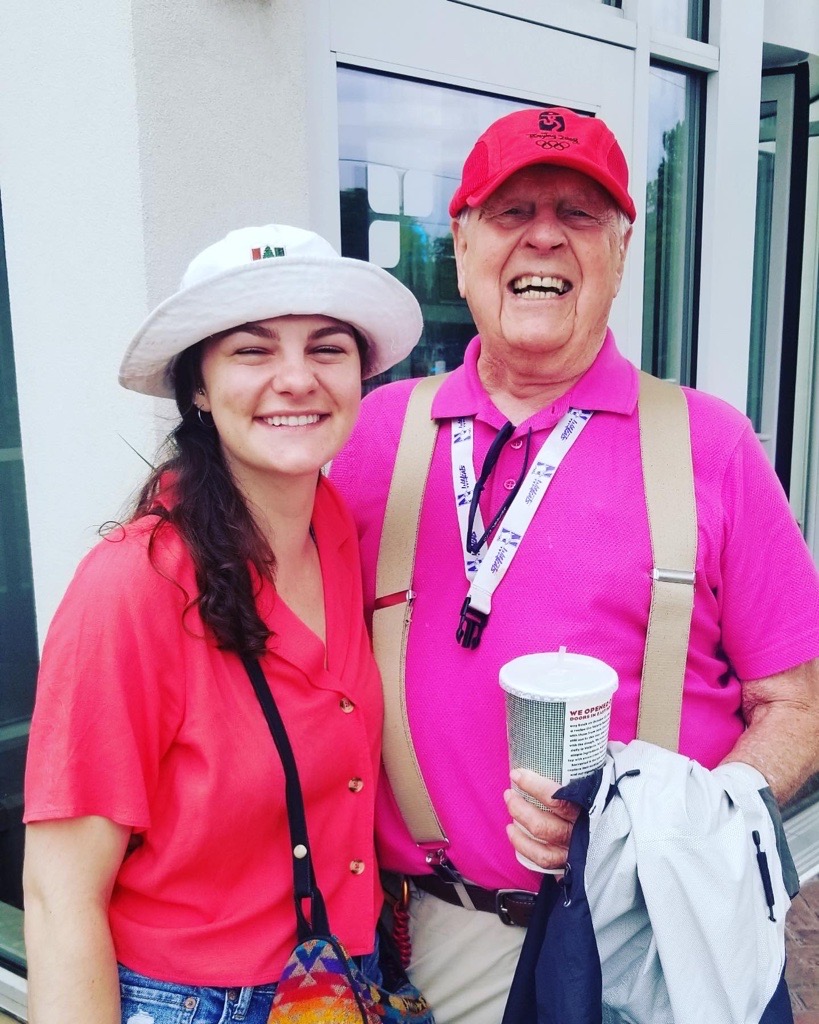Lifelong passions are often rooted in the teachers who support us on our path. I gained a love for math from a middle school teacher, “Mr. Scozz,” and passion for history from Mr. Virmilyea, a high school teacher. My passion for soccer… this came from my dad. Teachers plant the seeds.
In 2018, I started my career as an HVAC engineer and was supported by many great teachers. They helped me gain an understanding of mechanical systems through site visits, coordination calls, and general project meetings. They helped me gain confidence in my designs, in the way I carried myself in meetings, and in my approach to conflict resolution. As I progressed and became a lead mechanical engineer on some projects, not only did I continue to learn from more experienced colleagues (as we do throughout our careers), but I started becoming a teacher myself. My boss asked if I was prepared to teach a new hire fresh out of college, have her shadow me, and help her learn to design independently. Of course, I was ready!
I come from a long line of teachers – my father has been a teacher for almost 20 years, his sisters have been teaching in inner-city schools for decades, and my grandfather, Pops, was an English teacher and, later, high school Principal. Having my father as my science teacher enabled me to see how well he taught while encouraging students to enjoy the learning process. From him, I also learned how challenging yet rewarding it can be to make an impact on students who are resistant to learning, (and just how competitive he could be in the student-faculty basketball game!) My family planted the seeds for me, and I began teaching in college as a calculus tutor (which I loved). So yes, I was ready to take the next step and become a teacher as part of my job.

With the new hire, I started with the basics of using software like Revit, CAD, load calculation programs, etc. These were straightforward, quantitative, and easy for me to teach. As she became able to work more independently, I could assign her tasks and review lists of items we needed done. Yet I found her work incomplete and often not up to my standards. Feeling I was falling short as a teacher, I asked myself “Why doesn’t she understand?” “Why didn’t she get this done?” “Did she not listen to what I asked?” I knew this individual was passionate about her job, so I was confident that her performance was not rooted in a lack of effort or care.
I’ll admit I don’t like to waste time and can be a bit blunt, so I asked her if she hadn’t heard me or didn’t understand what I was asking of her. It was clear that my questions, while rooted in genuine concern, were not being received well, and I realized I was being hard on her the way I would be on myself. Throughout my life, as a student, athlete, and now engineer, I set very high standards for myself, standards that can often be difficult to meet. I learned a difficult lesson after realizing I was setting the same expectations for this young engineer that I set for myself.
With my year-end review coming up, I was still struggling with this teaching experience. My boss and one of the partners highlighted my work and general performance, all of which were going well, but then spoke to me in depth regarding the way I approached the issues I was having with the young engineer. They told me she felt I was being hard on her and overly critical. I knew then that this was not the time to bring up the questions I had about her performance. I think this was when I realized I was the problem. I hadn’t been prepared to adapt to a different learning and communication style or a different work pace from the way I operate. Honestly, it broke my heart for a bit knowing that the time and effort I was putting in were not having successful results. The one not putting their best foot forward was in fact, me.
After this discussion, I altered my expectations. This was my first attempt at changing my approach, but I quickly knew this wasn’t the right way either. I saw that she was passionate and engaged, but that I had put my own expectations for myself on her. I needed to understand that I couldn’t set expectations for her, that she needed the space to form her own expectations. We each create our own expectations for our own work and understanding these expectations are key to a successful teacher-student relationship. In a one-on-one conversation, we discussed how she learns best and my communication methods – something I had never done because I had made assumptions. The most important thing I did in that meeting was to let her know she was doing a good job and how I saw great potential but set the bar too high before she even had the tools to reach it. One size does not fit all with teaching and as I adapted to her learning style, we became a much better team. This was the start of great change in our working relationship, in our dynamic. The more I listened, the more she learned.
Teaching is an inevitable stage along many career paths. There is no army of one, especially in HVAC engineering – you need a team. As I discovered, teaching is not as easy as the great teachers make it look! Lesson One: Every individual learns differently. Lesson Two: While we teach, we never stop learning.


